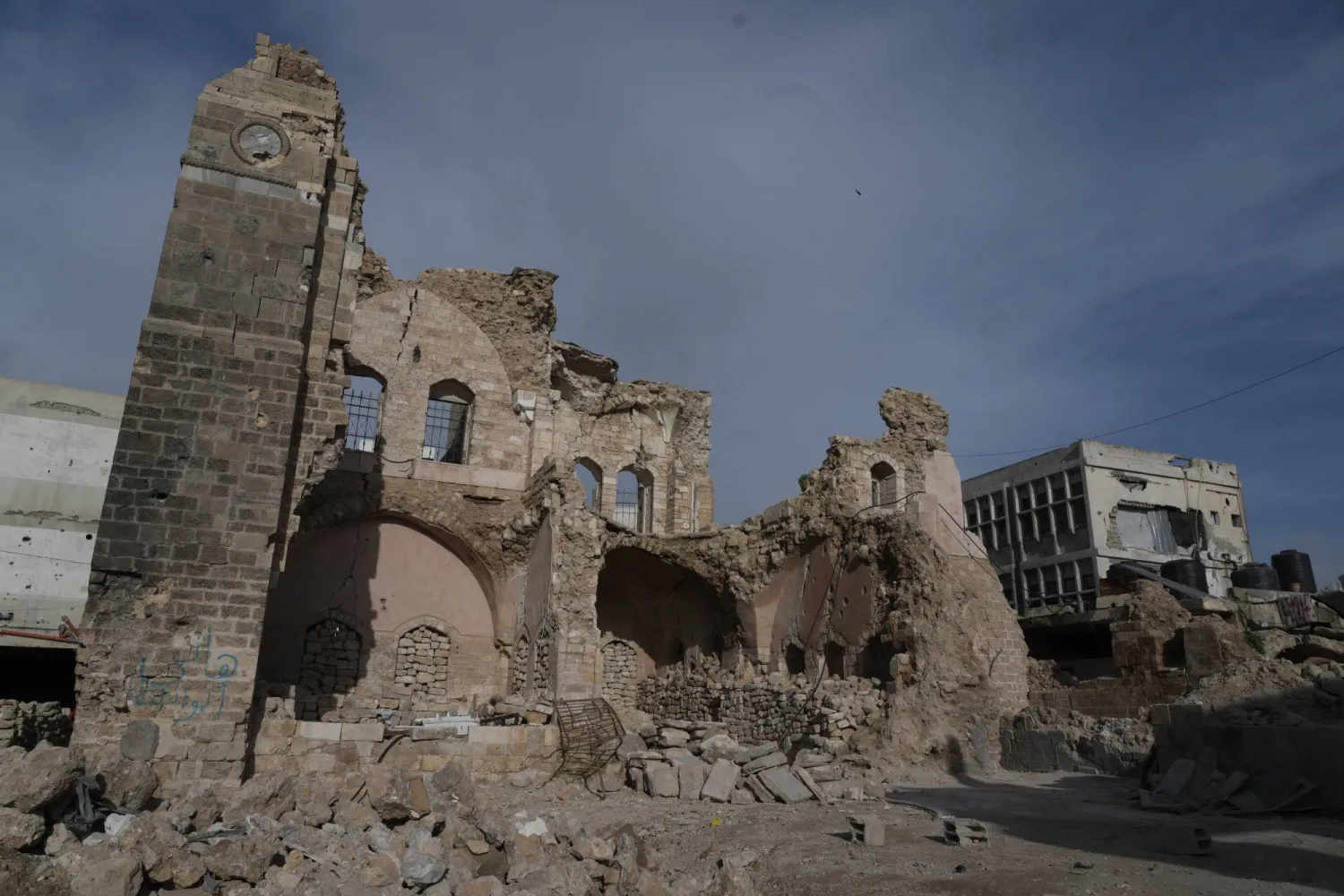In a clear, loud, direct voice and a shadowy image, the commander of Hamas' al-Qassam Brigades, Mohammed "Abu Khaled" Deif, announced the start of "al-Aqsa Flood" operation against Israel, putting it under fire for several hours.
Israel has not experienced a similar situation since the Egyptian crossing in 1973, with rockets falling on Tel Aviv and Jerusalem after al-Qassam fighters took control over several Israeli settlements and sites.
Hamas members set out and took control of Israeli sites, killing Israelis and taking others hostages, following the orders of Deif, who proved once again that he had the highest Palestinian say in launching or ending a war.
Who is Deif?
No one knows Deif except his family and a small group of Hamas members. Most of them do not know the whereabouts of the man Israel has been pursuing for decades as No. 1 wanted individual.
Currently, there are three pictures of Deif: a very old one, another of him masked, and an image of his shadow.
Even Israel, which boasts that it has the most powerful intelligence in the world, does not have a recent picture of the commander.
In January 2011, Deif's mother died. All Hamas leaders attended the funeral except for him. It is unknown whether he attended, as some say he was there, while others claim he didn't show up for security reasons. Some also claim he was at the burial disguised as an older man.
He is described as intelligent, quick-witted, and does not like appearing in public. He does not use technology and rarely broadcasts audio messages, only to announce the beginning of a new battle with Israel.
Deif has not appeared in public places for nearly three decades, or as those asked by Asharq Al-Awsat in Gaza say: "If we had looked at him, we would not have known him."
Deif's high sense of security may explain how Israel has been incapable of finding him.
The commander has been wanted by Israel since the mid-nineties when former Israeli Prime Minister Shimon Peres asked Palestinian President Yasser Arafat to arrest him before Arafat expressed his surprise at the name as if he did not know him.
Peres later admitted that he discovered that Arafat was protecting him, hiding him, and lying about him.
Israel tried to kill him more than once and wounded him twice.
Mohamed Diab Ibrahim al-Masri, dubbed Deif, was born in 1965 to a Palestinian refugee family from al-Qubeiba and settled in the Khan Yunis camp in the southern Gaza Strip.
Deif grew up in a very low-income family and was forced to leave school temporarily to support his family. He worked with his father in spinning and upholstery, then established a small poultry farm and worked as a driver.
The commander's friends in his neighborhood say he was gentle, had a good sense of humor, and a good heart.
Deif joined the Hamas movement at the end of 1987. He returned to school and received his education at the Islamic University of Gaza, where he graduated in 1988 after obtaining a bachelor's degree in science.
During this time, Deif created the Islamic theater group al-Ayedun, as he is known for his passion for acting. He played several theatrical roles, including historical figures.
Deif was responsible for the technical committee during his Islamic University Student Council activity.
Israel arrested him in 1989, and he spent 16 months in prison without trial on charges of working in the movement's military apparatus.
After his release, Deif and other figures began establishing al-Qassam Brigades.
During the 1990s, he supervised and participated in countless operations against Israel.
The Palestinian Authority arrested him in May 2000 at the request of Israel. He had a good relationship with the Authority, and his arrest was part of the understanding.
In 2002, he assumed command of al-Qassam after the assassination of its commander-in-chief, Salah Shehadeh.
In 2001, Israel first attempted to assassinate Deif. A second attempt was made a year later when an Apache helicopter fired two missiles at his vehicle, wounding him. Hamas leader and doctor Abdel Aziz al-Rantisi treated him at an undisclosed location.
In 2003, an Israeli plane attempted to assassinate Deif and some Hamas leaders in a house in Gaza. But the missile hit the wrong floor.
Three years later, a high-explosive missile hit a house where he met with Al-Qassam leaders. Once again, Deif survived, but Israel said he was seriously injured.
Israeli officials believe Deif can't walk and has lost one of his eyes. But Hamas has not confirmed or denied those claims.
Deif dispatched two recordings in recent years, using a silhouette dark image. Years later, he emerged masked while standing on his feet.














